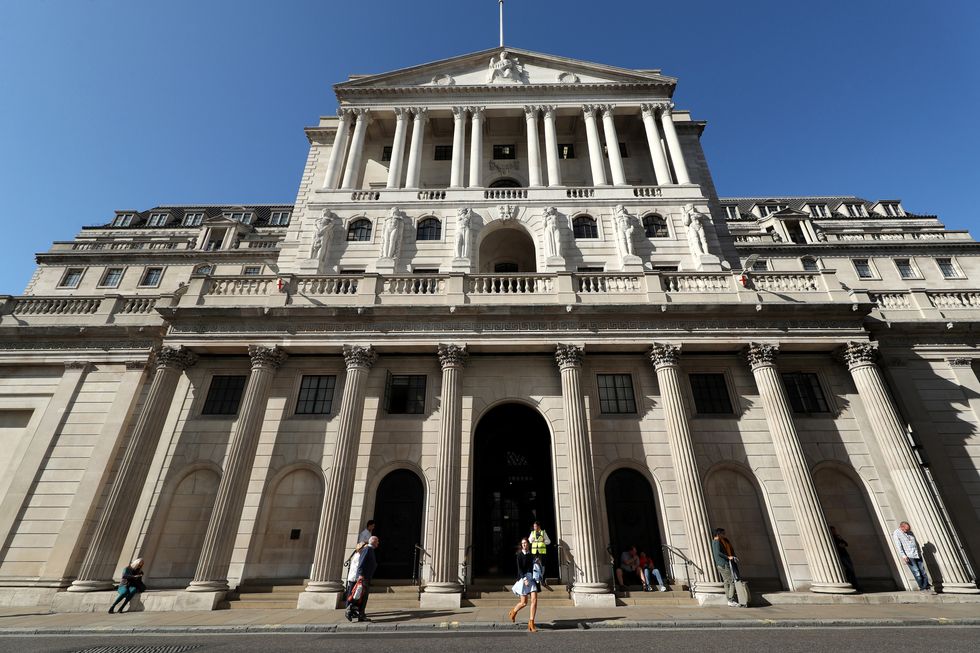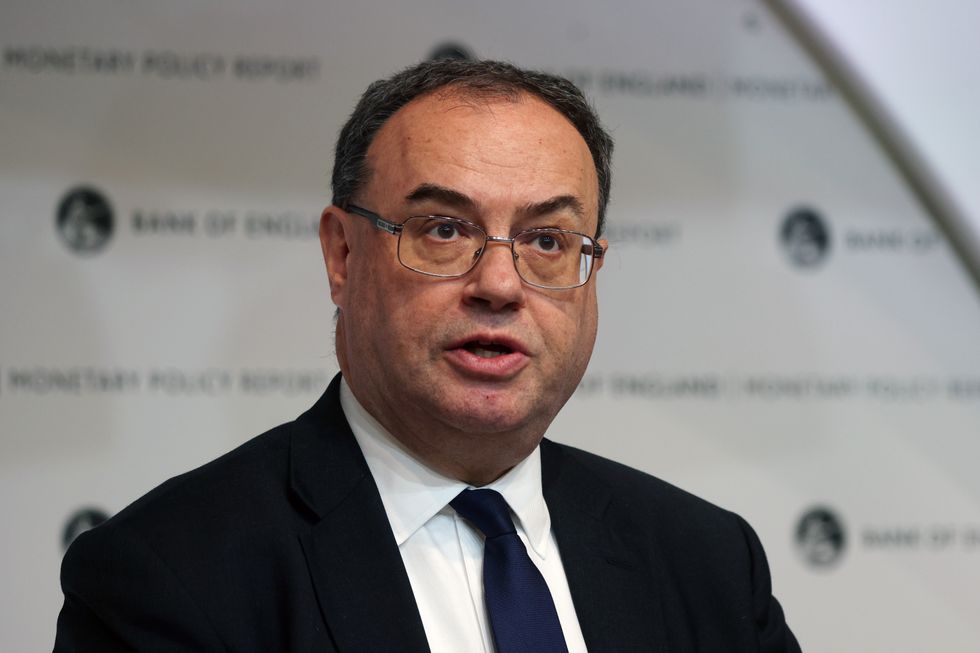The Bank of England has raised interest rates to one percent, up from 0.75 percent
Don't Miss
Most Read
Trending on GB News
The Bank of England’s monetary policy committee (MPC) of nine members voted six to three in favour of increasing interest rates to one percent from 0.75 percent.
The central bank said a minority of three members, Jonathan Haskel, Catherine Mann, and Michael Saunders, voted to raise interest rates by 0.5 percentage points to 1.25 percent.
In its report, the (MPC) said the jump in energy prices will drive the continued growth in inflation.
The MPC said: “Consumer Price Index inflation is expected to rise further over the remainder of the year, to just over nine percent in 2022 Q2 and averaging slightly over 10 percent at its peak in 2022 Q4.
“The majority of that further increase reflects higher household energy prices following the large rise in the Ofgem price cap in April and projected additional large increase in October.
“The price cap mechanism means that it takes some time for increases in wholesale gas and electricity prices, and their respective futures curves, to be reflected in retail energy prices.
“Given the operation of the price cap, consumer price inflation is likely to peak later in the United Kingdom than in many other economies, and may therefore fall back later.
“The expected rise in CPI inflation also reflects higher food, core goods and services prices.”
Chancellor Rishi Sunak warned earlier this week that homeowners could face paying an extra £1,000-a-year on their mortgages.
Based on UK average earnings of £594.34, the Chancellor’s prediction would see pay packets eaten into by 3.24 percent nationwide in the latest cost to hit households on top of petrol, food and energy bills.
Mike Owens, of finance and investment platform Saxo Markets, said: "The Bank of England’s decision to raise interest rates whilst signaling there are further hikes to come creates another uncontrollable increase in bills for many homeowners at a time when the cost of living is already skyrocketing across the UK.
“Chancellor Rishi Sunak has warned this could lead to mortgage payments rising on average by £1,000 per household over time and it’s clear this will be a problem for some consumers in more deprived areas of the country where average earnings are the lowest.”
Paul Johnson, director of the Institute For Fiscal Studies, warned of the impact on people’s mortgages.
He told BBC Radio 4: “We are still at historically staggeringly low levels of interest rates.
“So you look at it that way and think one quarter of a percent, half a percent, still a very low level, that doesn’t look very dramatic.
“On the other hand, of course, if you’ve got a mortgage and it goes up by half a percent or one percent proportionally, that’s a very big increase.
“That could be doubling your mortgage interest payments over a period of time, so even small changes now, at least down the line once people certain fixed rates run through, could have really big effects on people who have got significant mortgages.”
The Bank of England
Yui Mok
Governor of the Bank of England Andrew Bailey
Dan Kitwood










